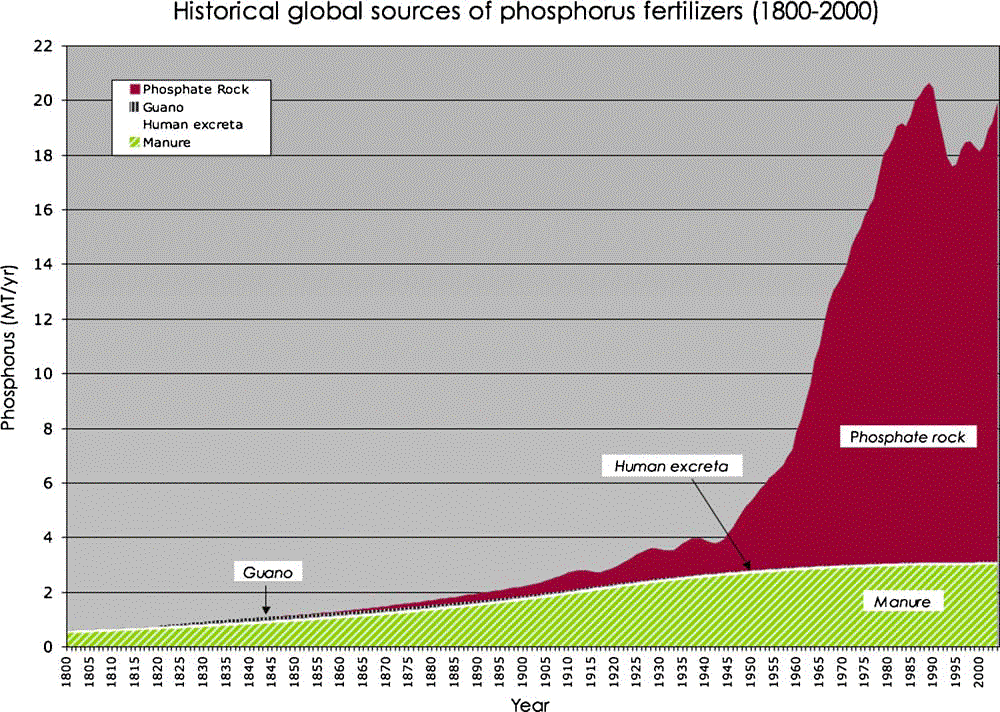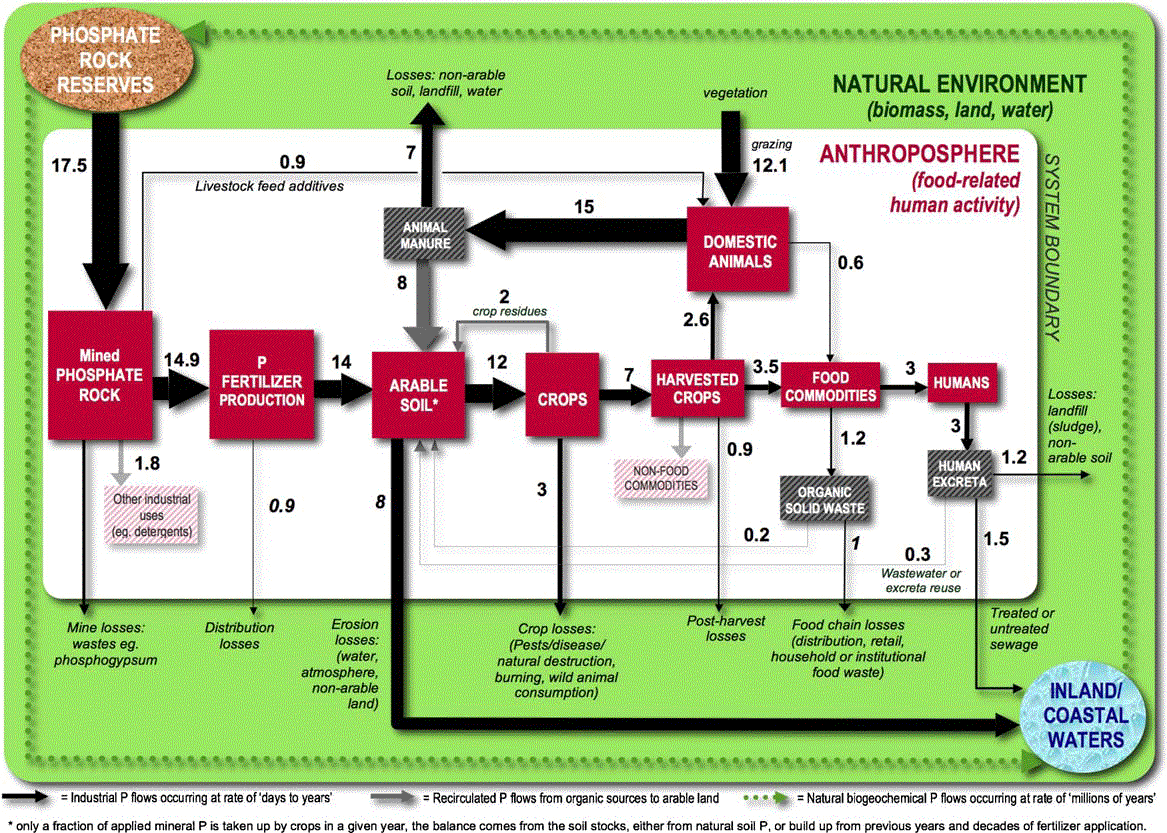
Fig. 1. Historical sources of phosphorus for use as fertilizers, including manure, human excreta, guano and phosphate rock (1800.2000) (Reliability of data sources vary, hence data points for human excreta, guano and manure should be interpreted as indicative rather than precise.). Calculations based on data in Brink (1977), Buckingham and Jasinski (2004), IFA (2006) and Smil (2000b).
〔Cordell,D., Drangert,J.-O. and White,S.(2009)によるThe story of phosphorus: Global food security and food for thoughtから〕
